Are proceedings under insolvency and bankruptcy code, 2016 governed by the provisions of limitation act, 196? Part II of an open debate
In the previous Article, I discussed about the applicability of the provisions of Limitation Act, 1963 in respect of the proceedings under the Insolvency and Bankruptcy Code, 2016 (IBC) before the Adjudicating Authority, which is Hon’ble National Company Law Tribunal (NCLT) and suggested that since NCLT is duty bound to fol- low the principles of natural justice and the rules framed for its working under the IBC and the Companies Act, 2013 and it will be appropriate for NCLT as ‘Adjudicating Authority’ to follow the principles of public policy that enforcement of rights and obligations must not be permitted to remain influx and indefinite period of time keeping in view the provisions of Limitation Act, 1963 and which enshrine the aforesaid pub- lic policy as part of principles of natural justice.
Irrespective of the conclusion in the previous Article that Limitation Act, 1963 shall be applicable on the proceedings before the Hon’ble NCLT even if the said section 433 of the Companies Act, 2013 would not have been made applicable on proceedings under Insolvency and Bankruptcy Code, 2016, there is another very important aspect which needs academic discussion as to whether what is the true meaning and scope of the word ‘debt’ in true commercial sense as defined under the In- solvency and Bankruptcy Code, 2016.
Such academic discussion assumes importance in view of various recent judgements/orders passed by the Hon’ble National Company Law Appellate Tribunal, New Delhi (NCLAT), where it is categorically held that provisions of ‘Limitation Act, 1963’ are not applicable to the proceedings under the IBC. For the paucity of space, I have not reproduced the observations in all such cases, but just summarised the said judgements and made some suggestions for further consideration:
In speculam Plast Pvt. Ltd. vs. PTC Techno Pvt. Ltd., the Hon’ble NCLAT observed as under:
The question that arises for determination in these appeals is:-
“Whether Limitation Act, 1963 is applicable for triggering ‘Corporate Insolvency Resolution Process’ under Insolvency and Bankruptcy Code, 2016 (hereinafter referred to as “I&B Code”)?”
In answering the above question which was framed by the Hon’ble NCLAT, it held as under:
“For determination of the issue, it is to be noticed as to whether ‘I&B Code’ is a ‘self- contained Code’ or not.”
The Hon’ble NCLAT then relied upon many observations of Hon’ble Supreme Court of India in ‘M/s. Innoventive Industries Ltd v. ICICI Bank & Anr’, 2017 SCC OnLine SC 1025’ and on the basis of the said observations in the aforesaid case, the Hon’ble NCLAT then examined as to whether the provisions of Limitation Act, 1963, which is general legislation on the law of limitation, shall govern the proceedings of initiation of corporate insolvency resolution process and thereafter under the IBC.
Relying upon the judgements of Hon’ble Supreme Court of India in the case of ‘Mukri Gopalan v. Cheppilat Puthanpuravil Aboobacker (1995) 5 SCC 5’, and ‘Hukumdev Narain Yadav v. Lalit Narain Mishra (1974) 2 SCC 133’, it held that “from the decision of Hon’ble Supreme Court in ‘Hukumdev Narain Yadav v. Lalit Narain Mishra (1974) 2 SCC 133’, it is clear that even if there exists no express exclusion in the special law, the court reserves the right to examine the provisions of the special law, to arrive at a conclusion as to whether the legislative intent was to exclude the operation of the Limitation Act, 1963 or not.”
The Hon’ble NCLAT then goes to great length to examine various provisions of the IBC to reach a conclusion that legislature intent is to exclude the provisions of Limitation Act, 1963 from the proceedings under IBC. The Hon’ble NCLAT then examined the issue of stale claim and effect of delay and laches in filing the proceedings under the IBC, based on such a claim and observed that:
“Learned Amicus Curiae rightly contended that there should be a time limit for raising claim, including money claim. In this regard, it is desirable to refer the definition of ‘Debt’ and ‘Default’ as defined in sub-section (11) and (12) of Section 3 of the ‘I&B Code’, and quoted below: –
“3(11) “debt” means a liability or obligation in respect of a claim which is due from any person and includes a financial debt and operational debt;
3(12) “default” means non-payment of debt when whole or any part or instalment of the amount of debt has become due and payable and is not repaid by the debtor or the corporate debtor, as the case may be”
From the aforesaid definition, it is clear that ‘debt’ is a liability or obligation in respect of a claim which is due from any person and includes a ‘Financial Debt’ and ‘Operational Debt’. It is further clear that when whole or any part or instalment of the amount of debt has become due and payable and is not repaid by the debtor or the ‘Corporate Debtor’, it amounts to ‘default’.
Now, the question arises, whether a person can claim any amount due from another, a ‘Corporate Debtor’ after long delay on the ground that Limitation Act, 1963 is not applicable?
To decide the aforesaid issue, it is necessary to notice the Doctrine of Limitation and Prescription, as held by jurists and Hon’ble Courts. The Doctrine of Limitation and Prescription is based on two broad considerations.
First, there is ‘a presumption that the right not exercised for a long time is non-existent and second that the object of fixing time limit for litigation is based on public policy, fixing a life span of legal remedies for the purpose of general welfare.
…………………..”Further, on the basis of ‘Salmond; jurisprudence, 12 Ed and judgements of Battley vs. Faulker (1820) 3 B & Ald 288 and Rajider Singh vs. Santa Singh, AIR 1973 SC 2537, and N. Balakrishnan v M.A. Krishnamurthy, (1988) 7 SCC 123, it held that,
“in view of the settled principle, while we hold that the Limitation Act, 1963 is not applicable for initiation of ‘Corporate Insolvency Resolution Process’, we further hold that the Doctrine of Limitation and Prescription is necessary to be looked into for determining the question whether the application under Section 7 or Section 9 can be entertained after long delay, amounting to laches and thereby the person forfeited his claim. If there is a delay of more than three years from the date of cause of action and no laches on the part of the Applicant, the Applicant can explain the delay. Where there is a con- tinuing cause of action, the question of rejecting any application on the ground of delay does not arise.Therefore, if it comes to the notice of the Adjudicating Authority that the application for initiation of ‘Corporate Insolvency Resolution Process’ under section 7 or Section 9 has been filed after long delay, the Adjudicating Authority may give opportunity to the Applicant to explain the delay within a reasonable period to find out whether there are any laches on the part of the Applicant. The stale claim of dues without explaining delay, normally should not be entertained for triggering ‘Corporate Insolvency Resolution Process’ under Section 7 and 9 of the ‘I&B Code’. However, the aforesaid principle for triggering an application under Section 10 of the ‘I&B Code’ can- not be made applicable as the ‘Corporate Applicant’ does not claim money but prays for initiation of ‘Corporate In- solvency Resolution Process’ against itself, having defaulted to pay the dues of creditors. In so far it relates to filing of claim before the ‘Insolvency Resolution Professional’, in case of stale claim, long delay and in absence of any continuous cause of action, it is open to resolution applicant to decide whether such claim is to be accepted or not, and on submission of resolution plan, the Committee of Creditors may decide such question. If any adverse decision is taken in regard to any creditor disputing the claim on ground of delay and laches, it will be open to the aggrieved creditor to file objection before the Adjudicating Authority against resolution plan and for its necessary correction who may decide the same in accordance with the observations as made above.”
The aforesaid observations make it clear that Hon’ble NCLAT decided that IBC is a complete code by itself and it by implied legislative intent exclude the applicability of the Limitation Act, 1963. It is also made clear that delay and laches beyond a reasonable period of above 3 year in filing application for trigging initiation of Corporate In- solvency Resolution Process may be a ground for dismissal of such petition in given circumstances, if delay and laches are not explained to the satisfaction of the Adjudicating Authority. However in this regard it not only contradicted itself from other observations, but also made a sharp departure from these ob- servations in case of section 10 petition by corporate debtor itself.
It may be noted that ‘Speculam Plast Pvt. Ltd.’ was then followed by Hon’ble NCLAT in deciding more appeals, namely Ellora Paper Mills Ltd. & Anr vs. Ajitnath Steels Pvt. Ltd.; Sanjay Bagrodia vs. Sathyam Green Power Pvt. Ltd. and Labdhi Enterprises vs. Baramati Agro Pvt. Ltd.
From the aforesaid it is clear that one issue which was neither raised nor answered, still needs consideration. It is whether ‘bad debt’, ‘dead debt’, ‘unenforceable debt’ or ‘unrecoverable debt’, can be used as ‘financial debt’ and ‘operational debt’, to initiate corporate insolvency resolution process (CIRP) under IBC or default can occur for not praying such ‘debt’ if any demand is raised in respect thereto. In my personal opinion, the question framed in the above cases was itself incorrect and hence conclusion reached is also incorrect in law, particularly in view of many judgements of the Hon’ble Supreme Court and many high courts, where it was clearly held that a ‘debt’ which is not enforceable in law or fact cannot be revived for the purposes of ‘winding up’ proceedings under the provisions of Companies Act, 1956. There are no two opinions that ‘winding up proceedings’, like ‘initiation of corporate insolvency resolution process’ are also not proceedings for recovery of a debt and that if corporate insolvency resolution process (CIRP) fails, then corporate debtor must be ordered to be liquidated under the provisions of IBC, like ‘final winding up order’, leading to distribution of assets of the corporate debtor to its all stakeholders. It may also be noted that, whereas the Hon’ble High Court, in winding up proceedings had the discretion to finally winding up the company or not, there is now compulsory liquidation of corporate debtor if corporate in- solvency resolution process fails for any reason. Hence the ultimate net result of both processes was and is the same. In my opinion, it will be commercial ab- surdity and far from the truth to state that any person who files a claim before Insolvency Resolution Process (IRP) does not wish the recovery of that claim by seeking repayment under CIRP or under liquidation process.
In view of the above, the following observation of the Hon’ble Supreme Court and Hon’ble Delhi High Court are very apt to reproduce, regarding the meaning and scope of ‘debt’ even in the proceedings which are not recovery proceedings, like winding up and CIRP under the IBC.
In Karnataka Steel & Wire Products and Ors. vs. Kohinoor Rolling Shutters & Eng. Works and Ors., the Hon’ble Su- preme Court of India held that;

……………………………. In the impugned judgment, the Full Bench of the Karnataka High Court has recorded its conclusion that the provisions contained in Section 458A of the Companies Act does not confer a fresh cause of action and, therefore, if the time for the claim is already barred under the relevant provision of the Limitation Act, then the appointment of official liquidator on an application being filed for winding up of the company, would not revive the barred date. It appears that the aforesaid view of the Karnataka High Court is in agreement with the decision of the Madras High Court in 63 Company Cases 749 and is in variance with the two Full Bench decisions, one of Delhi High Court in MANU/DE/0038/1978: AIR1978Delhi158 : AIR1978Delhi158 and the other of Kerala High Court in MANU/KE/0009/1989 : AIR1989K- er41 : AIR1989Ker41 . In the absence of any authoritative pronouncement of this Court on the question, it would, therefore, be necessary to examine the different views expressed by different High Courts as well as the relevant pro- visions of the Companies Act, and to find out which view is correct.
2. Under the provisions of the Com- panies Act, a winding up proceeding commences by presentation of a peti- tion as provided under Sub-section (1) of Section 441 of the said Act and at any time, after the presentation of a winding up petition, the Court may appoint the official liquidator. Under Section 446 of the Act, once an official liquidator is appointed, then all legal proceedings against the company can be proceeded with only with the leave of the Company Judge and subject to such terms as the Company Court imposes. Under Sub-section (2) of Section 446, it is the winding up Court which gets the jurisdiction to entertain any suit or proceeding by or against the company as well as any claim made by or against the company. Section 458A merely excludes the time in computing the period of limitation for any claim. The aforesaid section is extracted herein-below in extenso for better appreciation of point in issue:
“Section 458A. Notwithstanding anything in the Indian Limitation Act, 1908 (9 of 1908) or in any other law for the time being in force, in computing the period of limitation prescribed for any suit or application in the name and on behalf of a company which is being wound up by the Court, the period from the date of commencement of the winding up of the company to the date on which the winding up order is made (both inclusive) and a period of one year immediately following the date of the winding up order shall be excluded.”

In the case of Faridabad Cold Storage & Allied Industry v. official Liquidator of Ammonia Supplies Corpn. (P) Ltd. MANU/ De/0038/1978 : AIR1978 Delhi158 , the question for consideration was as to what is the period of limitation for a claim filed under Section 446(2) of the Companies Act and what is the starting point of the said period of limitation. It was held by the Full Bench of Delhi High Court that any such application in respect of a claim filed under Section 446(2) of the Companies Act is covered by the residuary article under Article 137 of the Limitation Act and the period of limitation is three years form the date when the right to apply accrues. The Court further held that the right to file a claim petition under Section 446(2) in respect of a claim enforceable at law on the date of the winding up order, arises on the date the winding up order is passed. The period of limitation of three years would, therefore, be from the date of the winding up order, after giving full effect to the provisions of, and the benefit of Section 458A of the Companies Act. The point in issue in case in hand is something different than the point that arose for consideration and was decided by the Delhi High Court. The order Judgment of the Delhi High Court in the case of R.C. Abrol & Co. Pvt. Ltd. v. A.R Chaddha & Co., MANU/DE/0039/1978 : AIR1978Delhi167 , the question of consideration was whether for an application under Section 446(2)(b) of the Companies Act, the provisions of Article 137 of the Limitation Act would apply or not and the High Court answered the same in the affirmative. That is not the dispute in the case in hand inasmuch as there is no dispute about the applicability of Article 137 of the Limitation Act to an application filed for enforcement under Section 446(2)(b) of the Companies Act. So far as the Judgment of Kerala High Court is concerned, in the case of K.P. Ulahannan and Ors. v. The Wan- door Jupiter chits (P) Ltd. , the question for consideration was whether the time prescribed under Section 458A of the Companies Act would be excluded for computing the period of limitation for a claim petition being filed under Section 446(2)(b) of the Companies Act read with Article 137 of the Limitation Act. In the aforesaid case, the Full Bench of Kerala High Court came to hold that the starting point of limitation for claim under Section 446(2)(b) is the date on which the winding up is passed or a provisional liquidator is appointed and Article 137 of the Limitation Act applies to such proceedings. It further held that the effect of Section 458A of the Companies Act is that the period from the date of commencement of winding up of the company to the date on which the winding up order is made and a further period of one year are to be excluded in computing the period of limitation. But where a claim which was barred on the date and winding up petition is filed, would revive on account of Section 458A of the Companies Act was never raised or considered in the aforesaid case. In a latter decision of the Delhi High Court however in the case Liberty Finance Pvt. Ltd (In liquidation) v. Pandit Radha Mohan and Ors. MANU/DE/0080/1978 , Ranganthan J, as he then was, considered the question, which is the subject matter of consideration in the case in hand and held that the expression “any claim” occur- ring in Section 446(2)(b) of the Companies Act means, “a claim which is legally enforceable and, therefore, a claim which had become time barred on the date of presentation of the winding up petition cannot be described as a legally enforceable claim and the provisions of Section 446(2)(b) do not enable the official liquidator to file or receive claims which had been quietened by the lapse of time.” Where there is an enforce- able claim as on the date of the winding up petition, the official liquidator can make an application under Section 446(2) and such an application will attract the provision of Article 137 of the Limitation Act. It was further held that reading Section 458A of the Companies Act and Article 137 of the Limitation Act together, such an application by the official liquidator should be filed within a period of four years from the date of the winding up order. To the same effect is the Judgment of the Punjab and Haryana High Court in the case of Maruti Limited (In Liquidation) and Anr. v. Parry and Company Ltd., 1989 CC 309.

3. On a plain reading of the provisions contained in Section 458A of the Companies Act, it is crystal clear that the aforesaid provision merely excludes the period, during which a company was being wound up by the Court from the date of the commencement of the winding up till the order of winding up is made and an additional period of one year immediately following the date of the winding up. In other words, in respect of a legally enforceable claim, which claim could have been made by the company on the date on which the applications for winding up is made, could be filed by the official liquidator by taking the benefit of Section 458A of the Companies Act and getting the period of four years to be excluded from the period of three years, as provided under Article 137 of the Limitation Act.
The Legislature, by way of an amendment, brought into force the provisions of Section 458A, so that in official liquidator, who is supposed to be in custody of the assets and liability of the company, would be able to file a claim on behalf of the company, (SIC) legally enforceable on the date of the winding up, after excluding the period, indicating under Section 458A of the Companies Act, so that the company or its shareholders will not suffer any loss. But by no stretch of imagination, the said provisions contained in Section 458A can be construed to mean that even a barred date or a claim which was not enforceable on the date of the winding up, would stand revived, once a winding up application is filed and order is made by virtue of Section 458A of the Companies Act. We, therefore, affirm the view taken by the Karnataka High Court under the impugned Judgment and dismiss these appeals. There will be no orders as to costs.
The Hon’ble Delhi High Court, in CIt vs. Chipsoft technology Pvt. Ltd. has held as under:

“8. Two aspects are to be noticed in this context. The first is that the view that liability does not cease as long as it is reflected in the books, and that mere lapse of the time given to the creditor or the workman, to recover the amounts due, does not efface the liability, though it bars the remedy. This view, with respect is an abstract and theoretical one, and does not ground itself in reality. Interpretation of laws, particularly fiscal and commercial legislation is increasingly based on pragmatic realities, which means that even though the law permits the debtor to take all defences, and successfully avoid liability, for abstract juristic purposes, he would be shown as a debtor. In other words, would be illogical to say that a debtor or an employer, holding on to unpaid dues, should be given the benefit of his showing the amount as a liability, even though he would be entitled in law to say that a claim for its recovery is time barred, and continue to enjoy the amount. The second reason why the assessee’s contention is unacceptable is because with effect from 1-4-1997 by virtue of Finance Act, 1996 (No.2), an Explanation was added to Section 41 which spells out that “loss or expenditure or some benefit in respect of any such trading liability by way of remission or cessation thereof” shall include the remission or cessation of any liability by a unilateral act by the first mentioned person under clause”. The expression “include” is significant; Parliament did not use the expression “means”. Necessarily, even omission to pay, over a period of time, and the resultant benefit derived by the employer/assessee would therefore qualify as a cessation of liability, albeit by operation of law.
9. The submission of the assessee that no period of limitation is provided for under the Industrial Disputes Act, as a result of which it is exposed to liability at any time, is insubstantial and unpersuasive. This is because in The Nedungadi Bank Ltd. vs K.P. Madhavankutty MANU/SC/0049/2000 : AIR 2000 SC 839 the Supreme Court held that even though under the Act no period of limitation has been prescribed, a stale dispute one where the employee approaches the forum under the Act after an inordinate delay cannot be entertained and adjudicated. In view of the foregoing reasons, the question of law is answered in the affirmative, in favour of the revenue, and against the assessee; consequently the orders of the Commissioner (Appeals) and the impugned order of the ITAT are hereby set aside. The order of the Assessing Officer is hereby restored. The appeal is allowed in the above terms without any order on costs.”
From the aforesaid it is clear that a ‘debt’ which is rendered unrecoverable under the provisions of Limitation Act, cannot be claimed in commercial sense and that such debt can be written off as bad debt and even form part and parcel of profit and loss of a commercial enterprises for the purpose of Income Tax and Companies Act. Now reverting to the provisions of IBC it may be noted that pursuant to the provisions of section 3(11) of the IBC, debt means a liability or obligation in respect of a claim which is due from any person and includes a financial debt and operational debt. The word ‘due’ used in the definition of ‘debt’ signifies that the debt shall be an enforceable debt. In other words, the debt shall be legally due and recoverable. The said intention of legislature becomes clear from the definition of ‘default’ provided in section 3(12) of the IBC. In terms of the provisions of Section 3(12) of the IBC, default means non-payment of debt when whole or any part or instalment of the amount of debt has become due and payable and is not repaid by the debtor or corporate debtor, as the case may be. Hence the word ‘due’ signify that the debt shall be legally enforceable against the corporate debtor and the word ‘payable’ signifies that the debt shall be recoverable in fact and in law. In other commercial sense it should be ‘alive’ and ‘living’ debt. In this regard, the following words of the Hon’ble Supreme Court in the case of M/s Innovative Industries require special attention of one and all;
“It is at the stage of Section 7(5), where the adjudicating authority is to be satisfied that a default has not occurred in the sense that the “debt”, which may also include a disputed claim, is not due. A debt may not be due if it is not payable in law or in fact.”
Accordingly, the question here arises is that can the debt shall be considered as duly recoverable for an indefinite period of time for the purpose of the proceedings under the IBC. If the rationale of the judgement passed in Speculam Plast Pvt. Ltd. vs. PTC Techno Pvt. Ltd. is to be followed then a holder of an unpaid debt which became due and payable 3 years or more in the past but not enforced in law, in presenty can also be used as ‘financial debt’ or ‘operational debt’ to initiate proceedings under IBC and as a result of the same, the Adjudicating Authority will entertain such petitions under IBC which debt otherwise in law are unrecoverable claims, dead debts and lifeless, unenforceable claims, under the law of limitation. This certainly can not be the intention of the parliament to make dead debt alive and enforceable for the purposes of IBC, nor is such interpretation permissible in law.
It is a serious question to ponder as to whether a person who cannot claim the amount of his debt by filing a suit for recovery because his debt is debarred by law of limitation, can be allowed to file a petition under IBC even as his claim of debt is not legally recoverable due to the law of limitation and enjoy the satisfaction of such a claim either as part of CIRP or under the liquidation if CIRP fails for any reason. A debt which becomes due shall be considered as legally payable or recoverable within the time limit prescribed under the agreement executed for such debt transaction and, if such time limit is not prescribed under such agreement, then the same shall be recoverable within the reasonable period of time. What shall be considered as reasonable period of time is prescribed under the Limitation Act, 1963 and hence the same shall be followed. A debt, the recovery of which is barred by limitation, cannot be considered as legal debt for the purpose of proceedings under IBC as such debt has no longer remained payable. It is neither due nor repayable. It cannot satisfy the requirement of ‘default’ which is essential requirement of triggering corporate insolvency resolution process, under the provisions of sections 7, 9 or 10 of IBC.
Even under the earlier Companies Act, 1956, in a petition of winding up on the ground of inability to pay debt, the debt which were time barred were not considered even though there is no specific provisions under the said Act which provides about the applicability of Limitation Act, 1963 on the proceedings of winding up before the Hon’ble High Courts. It is also pertinent to note here is that the Companies Act, 1956 also uses the word ‘due’ and ‘payable’ which were tested and interpreted by the various Hon’ble High Courts from time to time. In various judgements passed by the Hon’ble High Courts of respective states, it has been held that a creditor whose debt is barred by limitation cannot file a petition for winding up of a company on the ground of its in- ability to pay debt since his debt is not legally recoverable.
In Interactive Media And … vs Go Airlines Limited, the Hon’ble Delhi High Court has held that a winding up petition will be maintainable when a company is unable to pay the debt which is due and payable. The debt should be one which is legally recoverable and is not barred by the law of limitation.
In another case of Niyogi Offset Printing Press Limited versus Doctor Morepen Limited, (2009) 149 Company Cases 467, it was held that “27. The claim of the petitioner for recovery of the amount has become barred by time. If the petitioner files a suit for recovery of the said amount, the suit will be dismissed as barred by time. If the claim of the petitioner to recover the amount has become barred by time, it will not be appropriate to initiate the process of winding up of the respondent company. Under Section 433(e) of the Companies Act, 1956 the machinery for winding up cannot be allowed to be utilized merely as a means for realizing debts due from a company which is also barred by time. Consequently there are no grounds to initiate the winding up proceedings against the respondent company. The petition, therefore, is without merit is liable to be dismissed. The petition, therefore, is dismissed.”
In another case of vijayalakshmi Art Productions vs vijaya Productions Pvt. Ltd., 1997 88 CompCas 353 Mad, 1996 (2) CTC 396, the Hon’ble Madras High Court also held that:
“In the summary enquiry under section 433 at the stage of admission before deciding as to whether winding up proceedings should be initiated the court to ascertain whether, interalia, the claim made by the creditor is barred by limitation or whether it is legally enforceable. If the claim made by the creditor is on the face of it not one which can be en- forced, it is unnecessary to examine as to whether the claim is a genuine claim, and as to whether the respondent has a bonafide and reasonable defence on the merits to the claim. The right to apply for winding up under section 439(b) is a right conferred on the credits and not on any person, however anxious that person may be, to have the company wound up.”
What was true in commercial world in the case of winding up petition under section 433(e) of the Companies Act, 1956 should be true for the proceedings under IBC. Under the Companies Act, 1956, the debt which were ‘due and payable’ was the basis for determining the filing of winding up petition and similarly, under the IBC, a default, on the occurrence of which proceedings under IBC can be initiated, is said to be made in payment of debt when there is non- payment of amount which has become ‘due and payable’. A debt when become payable and not demanded within the time period prescribed, cannot be claimed from the creditor by filing a case before the adjudicating authority. The debt of such person cannot be considered for payment even at the time of liquidation of such company and hence shall also not been considered as ‘financial debt’ or ‘operational debt’ for the purpose of initiation of IBC proceedings. It is my fervent plea that issue be correctly examined on the basis of commercial reality and on the hypothetical basis. In my personal view there is nothing which is self sufficient and can operate in vacuum, even if it is a code by itself. IBC is also another law of the land like others and must pass the test of ground reality and commercial wisdom and public policy.
(The writer is a senior Advocate & president, NCLT Bar Association New Delhi)








 OpinionExpress.In
OpinionExpress.In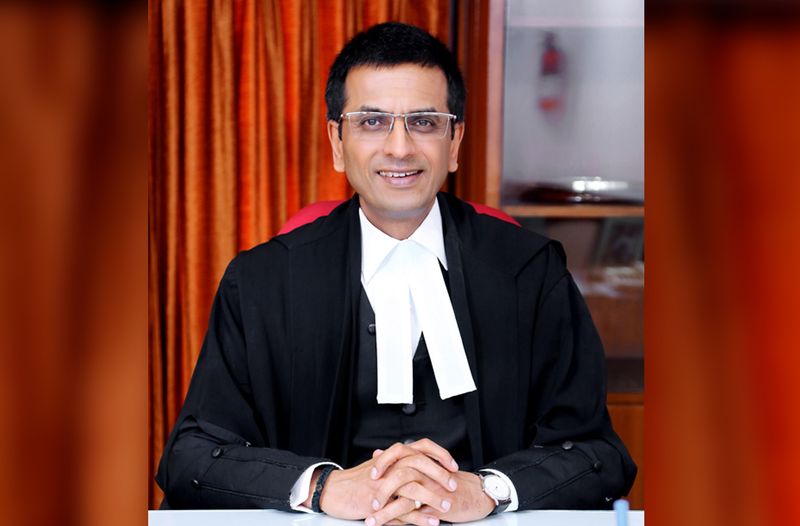
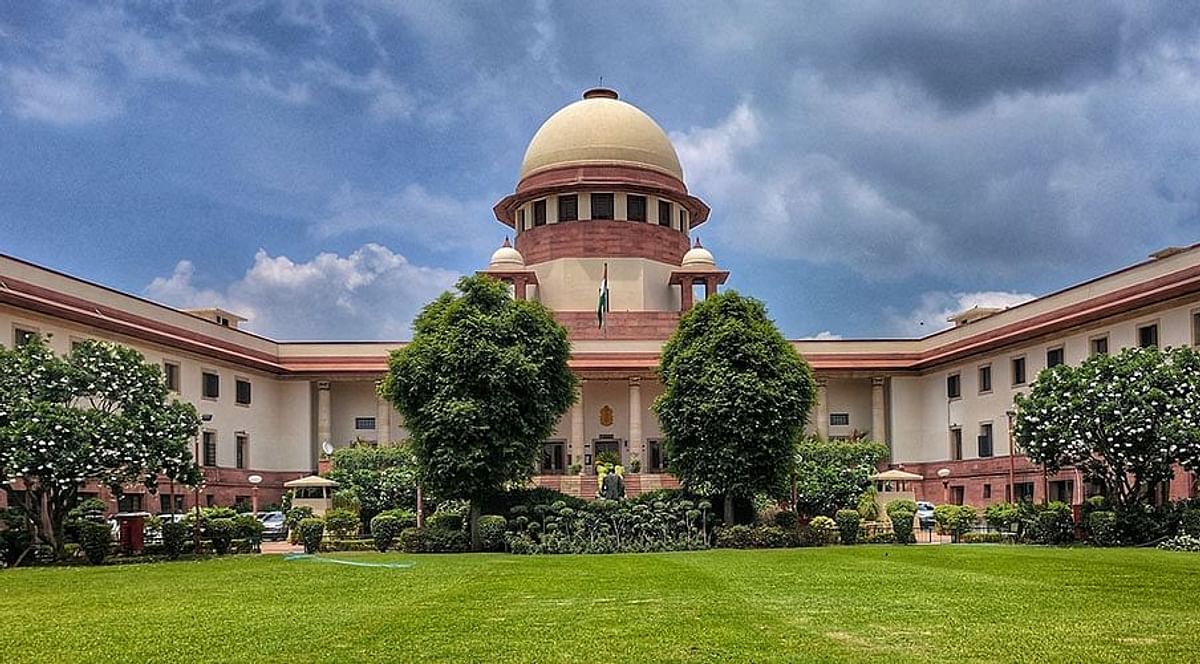
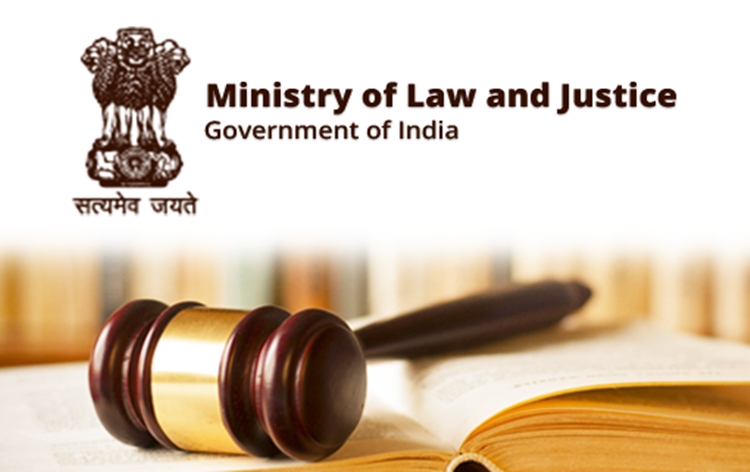
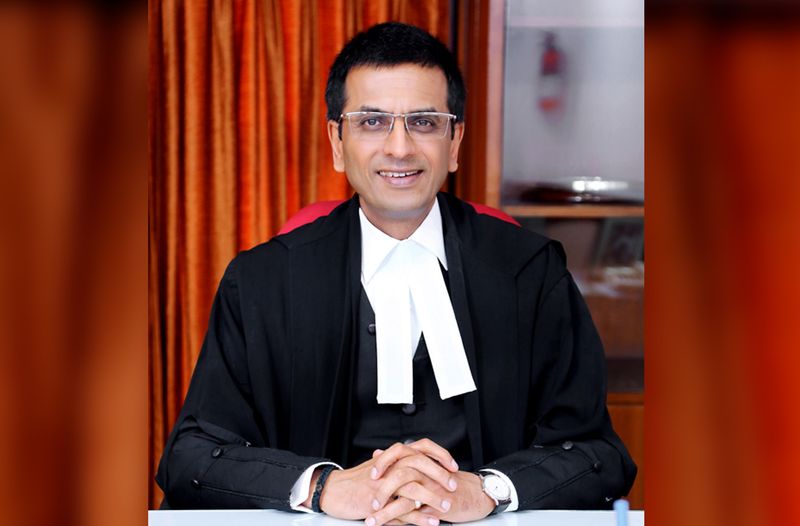
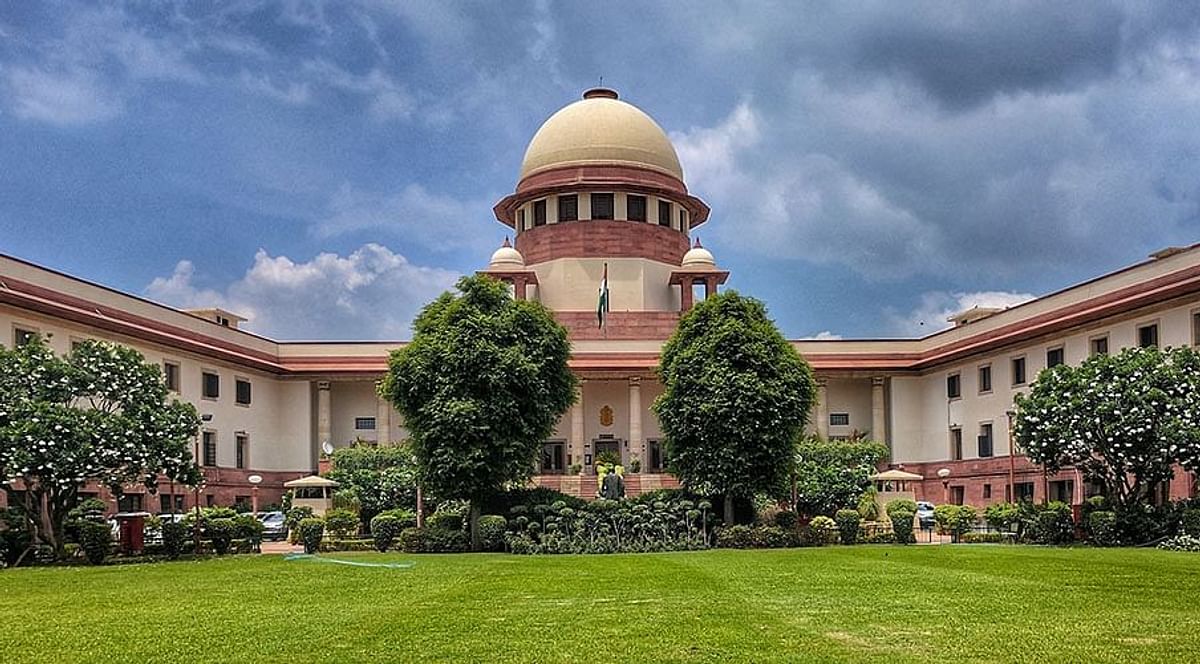

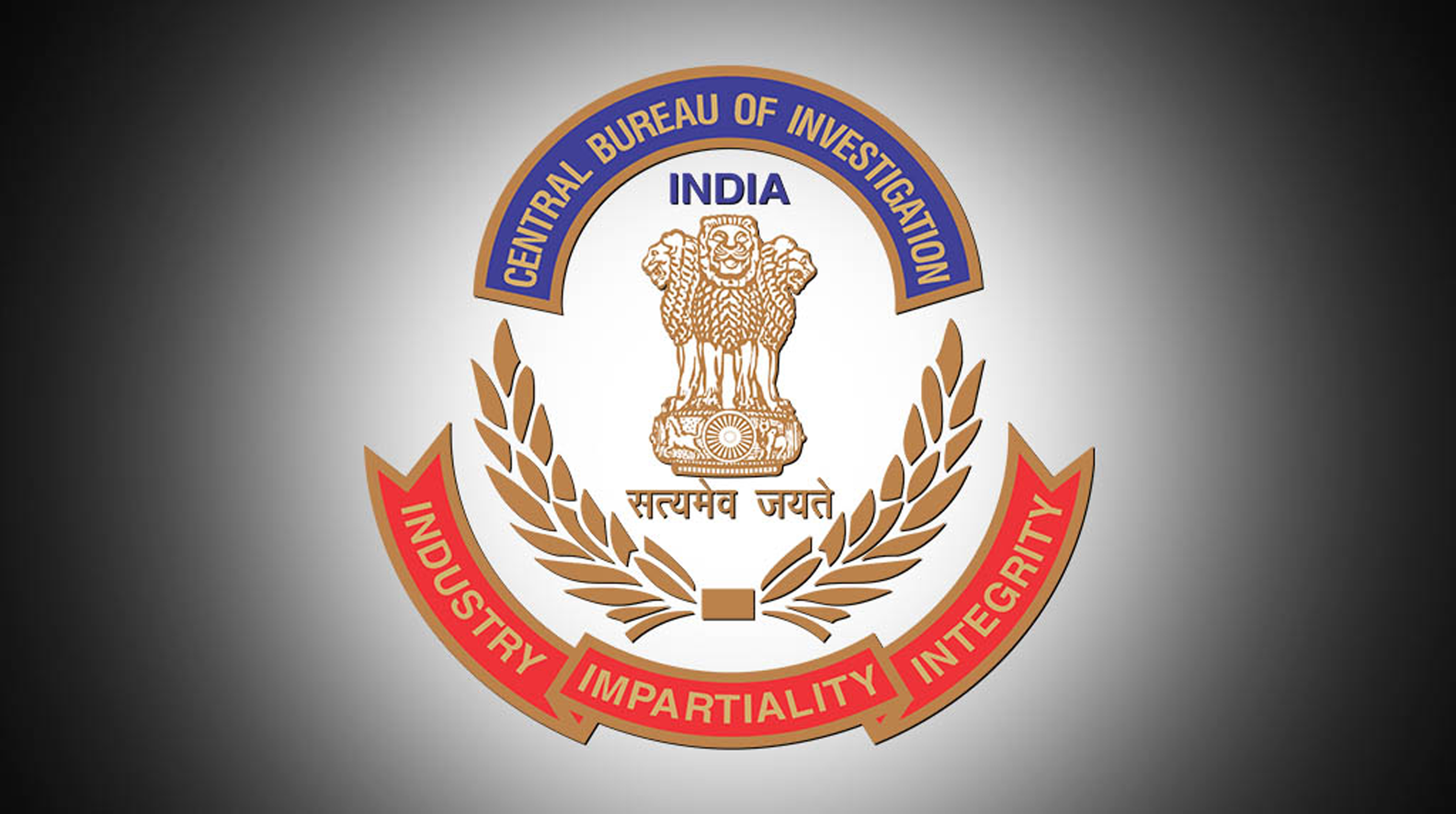
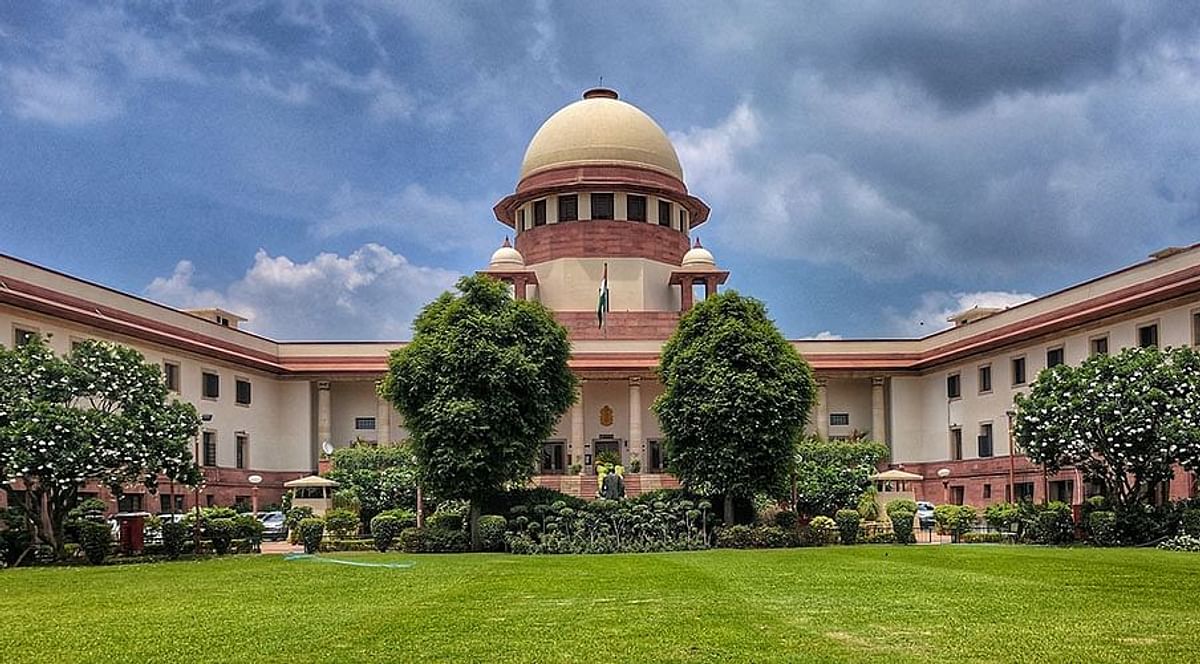
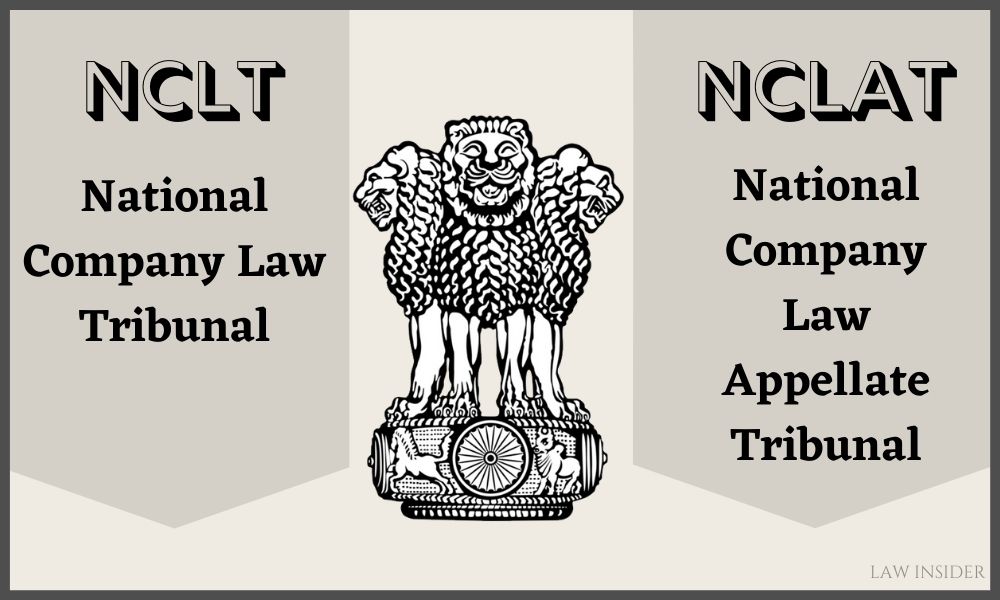
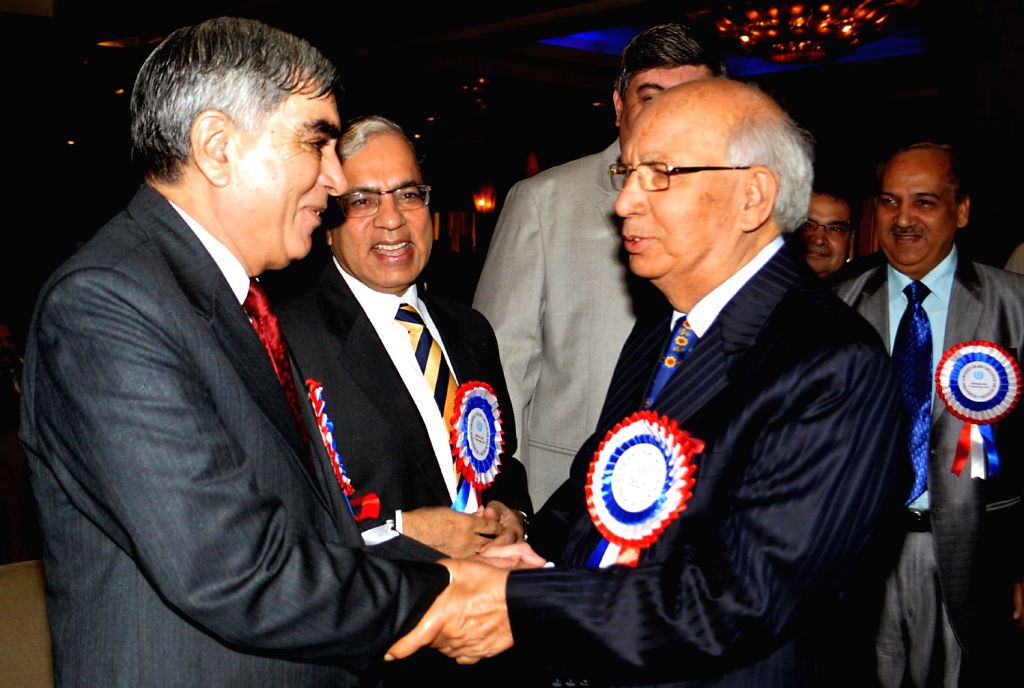






Comments (0)